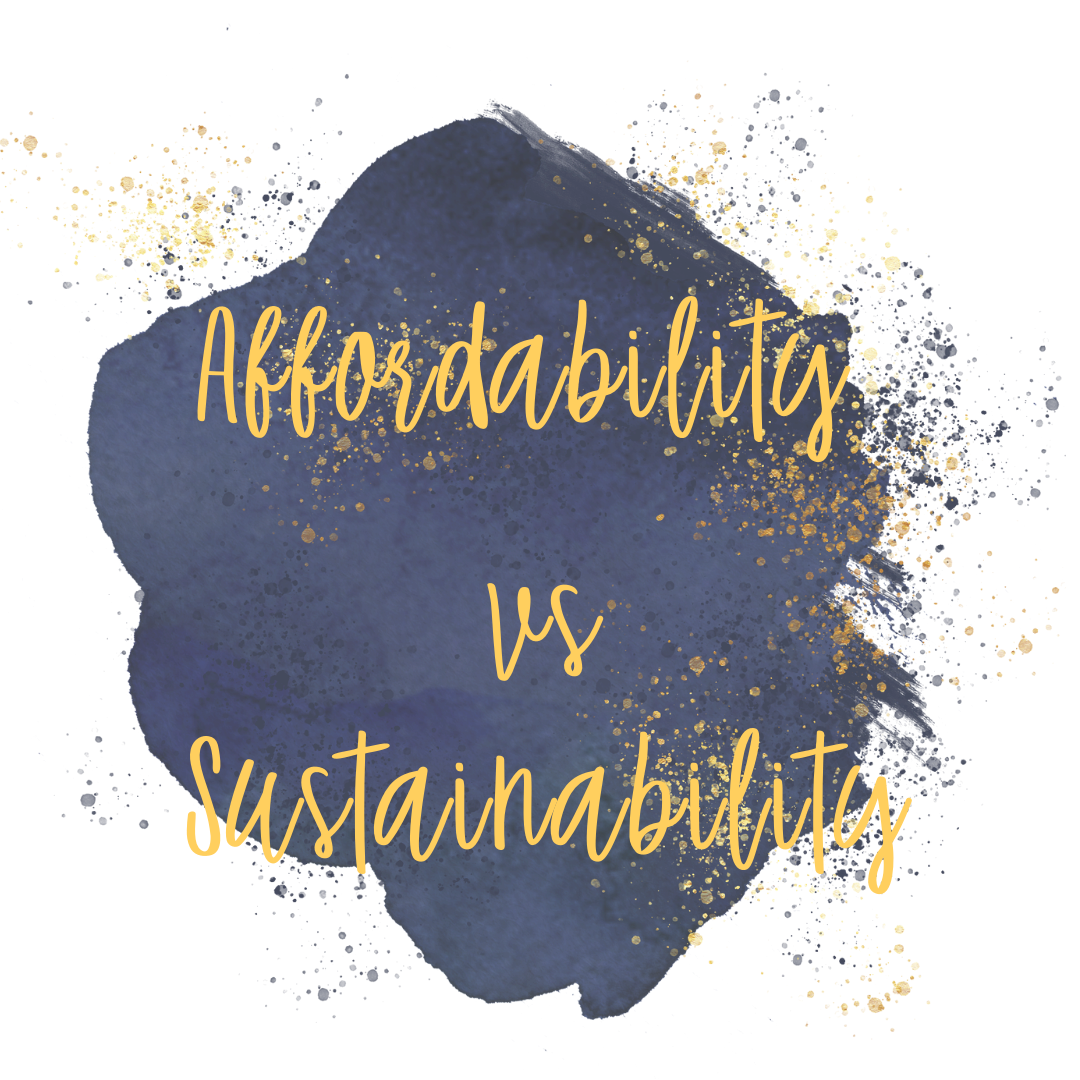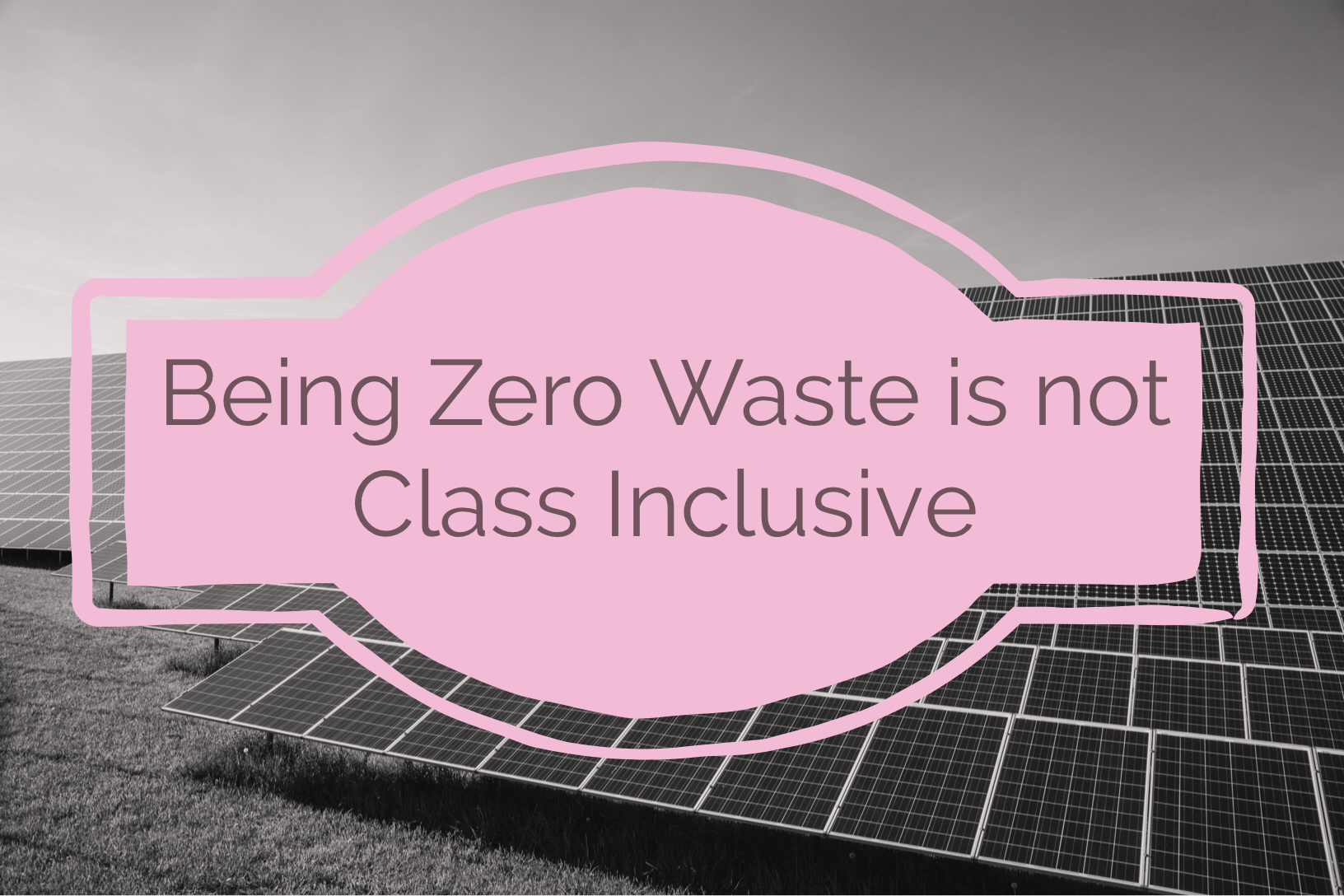Affordability & Sustainability: Why They Need to Work Together to Make A Change for the Better
Do you consider yourself a green family? A zero waste expert? Eco friendly? Are you just trying to do your bit to help the environment but actually when you look into it you think how the fuck do people afford to do all this? I am in that camp. This is me. A little while ago I wrote how being zero waste was poverty shaming and I stand by this because it is. However, the planet is in crisis, the environment is being destroyed and no one knows how to save it. There are loads of things the individual person can do to make a difference but let’s be honest it’s commerce, businesses and firms that are mostly responsible for the destruction of the world. Right now sustainability is not affordable.

Global Companies and Government Need to do better!
The problem here though is that not all of the worldwide governments ‘believe in climate change’ which gives them no motivations to enforce laws and sanctions on companies that do nothing to minimise their damage. That don’t pay their staff fairly. That are damaging and exploitive for it’s workers. They don’t do enough globally and collectively to look for green energy sources of power despite these warnings that fossil fuels will eventually run out anyway. Sadly, on an individual level there isn’t a lot we can do. Sustainable living is not affordable when the government doesn’t want to help those that struggle the most.
We look at our own country and government who insist that extinction rebelling are basically the same as terrorists – eco terrorists, I mean they’re not Poison Ivy (perhaps we actually need an anti-hero like her to get the job done?). When are they going to come up with one of their (stupid) infamous three world slogans for saving the planet? (they won’t because saving the planet and environment will cost their buddies money). We will never, ever get anywhere with two party politics. The time for that system to change is now, and green representatives needs to have a say in how the country is run. Maybe it would be if we didn’t have an electorate that runs on classism and racism even when their governement lies to them…but that’s a post for another day
Governments need to reduce emmissions now, not at 2025. I can tell you what will help people be more eco friendly and sustainable. Funding. Fair funding for mental health, physical health, education, employee rights, living wages and fair and equal housing costs. When a country equally funds a society you can expect to see less crime, more spending, more qualified individuals, a happy population, a happy work force and just basically a happy society. Happier people want to put their energy into things that can make them do better. Happier people who aren’t so stressed about money and health and work and education all the time will be able to afford greener energy, electric cars and will be easily able to support smaller, sustainable businesses. The problem with this is that it’s not compatible with capitalism.
Capitalism is the brick wall of sustainability & affordability working together
Capitalism is shit. There’s no denying it. We are told we all have equal opportunites, we are told we have a consumer choice and we are told that all we need to do is work hard to get what we want. I am calling bullshit. What’s the point in working hard on a zero hour contract with no chance of promotion and to be told you could have no hours next week?
How is their a consumer choice when it’s hard for small businesses to start? Or when Amazon offer prime now and people can get instant gratification? How is it helpful when there is a gender pay gap? When private schools (aka people with money) can offer better education and ignore the government approved national curriculum? You can literally buy a shortcut to success if you can afford it so what’s the point. When your press is funded by the government you’re not getting any clear, non biased information at all.
Capitalisim basically keeps the poor poor and poorly educated working all hours in a job they hate to buy stuff from rich people on credit, to get into debt because they’re told by advertising and their press that they “need” things because it will make them look and feel richer. Basically, Fight Club and the song Between Angels and Insects by Papa Roach explains what capitalism does and why it’s really shit.
Okay, so what does this have to do with sustainability?
So why is sustainable unaffordable? My point is that sustainability is unaffordable for the working class of this country and quite frankly, whilst I agree we should all do our part, because of the government choices, because of capitalism and because of our education and classist attitude the working class can’t do it all because they can’t afford it. Of course some people are poor and savvy, they are living a low waste lifestyle out of necessity rather than choice. But some people are both finanically and time poor, and therefore will pay the fee for convinience which results in more waste and plastic filled alternatives. If people were paid fairly and job offers were flexible we’d probably see more people making a difference.
If environmental studies was part of the cirruculum our children would be tempted to make changes. If cooking skills was part of the national cirriculum children would grow up understanding about meal preparation to save money, prevent waste and be able to cook (having a knock on effect in the “ob*sity crisis” this country faces – a crisis because the government are fatphobic and ignore the socioeconmoics that link poorness with fatness and deprivation but NEVERMIND).
The thing is it’s up to companies to pay their wages fairly and not use child labour. It’s up to companies to be more inclusive and sustatinable to prevent fast fashion. It’s all very well going charity shopping but that isn’t always size inclusive and sometimes denotes a person’s style – we want to feel good in the clothes we wear, as fat people, not frumpy! It’s up to companies to reduce their plastic usage and use recyclable, biodegradable materials. It’s up to companies to set the price point and make sustainable things affordable for poor people. If it’s just for the rich, then it won’t work and it won’t save the planet and therefore it completely negates any form of sustainable claims because it is only ever going to be sustainable if it is affordable.
By all means, you do you. Although I would say try not to buy into greenwashing. Just because it has a ‘sustainable’ ‘eco friendly’ or ‘clean living’ logo on it’s shiny packaging doesn’t mean it is. It’s only biodegradable if you put it on a compost heap. If it goes in the bin and to landfill it won’t be able to biodegrade because of the state of our landfills. If you recycle but it goes to an incinerator then you’re not doing your part because it fuels carbon emissions anyway. The make your own brigade won’t appeal to those that are time poor because it will just be another stress on their never ending to do list that they will struggle to fit in. You can do the best you can with the resources you have.

Can you make sustainability affordable without greenwashing?
Yes you can but again it’s hard to do if your time poor which is why green washing exists. It’s the illusion of convienience encouraging you to buy a particular product because it makes you feel like it’s sustainable. Some of the product might very well be but it isn’t just about that. If they only have one ‘green’ product but continue with all their others then they are not a sustainable company. It’s about researching and actually are you just paying a fee for a label or a sticker or are you actually contributing to real sustainability.
Some companies might say the use natural products but then still test on animals or refuse to pay fair wages or use child labor or invest in fossil fuels. Your money will contribute to those things even if the product you buy claims to be sustainable. It follows the old adage if it seems to good to be true, it probably is.
There are some genuinely wonderful companies out there that are really trying to be affordable and sustainable but these are few and far between. There are some amazing small businesses that make products that are just as affordable as high street brands but are more ethically sourced and are more transparent about their ethos on zero or minimal waste. The thing is we pander to big advertisements and again, those that are time poor often don’t have time to find and research everything they purchase to see if it’s green washing or not. Green washing is the bain of making sustainability affordable for all.
So what should you do?
Think about the three principles of sustainability. I can’t tell you what to do but I will say that the ethos reduce, reuse, recycle can be applied to every single purchase you make.
Do I really need to buy this item, is it saving me time or money, do I use it?
How can I reuse or repurpose this item before I throw it away? Is there an alternative I can buy to reuse this item better?
Can I recycle this? Can I make this into something new?
Here are some ideas and suggestions that might be beneficial to you. I don’t expect anything from you but to use this as inspiration. But the pressure needs to be put on the government, on companies, and on purchasing decisions. Support small, local businesses if and where you can.
Buy tins/glass rather than plastic
Swap disposable for reusable wipes/nappies/cleaning cloths/teabags
Buy solid soap/shampoo/conditioner
Make your own cleaners
Avoid throwing away food
Eat less meat
Buy white toilet paper, not coloured or dyed (or use reusables)
Buy fruit/veg loose rather than covered in plastic
Buying secondhand
Swapping energy supplier
Using your local library
If you have the time and financial availability you can broaden your sustainability more
Litter picking/beach clean ups
Using refill stores and shops
Using your local farm shop
An electric car/hybrid
Prep meals as and when you can
Create a capsule wardrobe
Avoid buying new
Try some vegan meals/alternatives
Mostly try and research who you’re buying from. If this purchase is a can’t change but you could buy it from a more sustainable business then have a look around. If you have a choice use it because your choices will help make sustainability more affordable.
Don’t Let Guilt Weigh You Down
The most important thing I want to stress is I hold no judgement at all. It isnt YOUR fault that sustainability isn’t the norm when the government isn’t doing everything in it’s power to make sustainability affordable. It isn’t YOUR fault if you don’t earn enough to be able to choose where you shop. It isn’t YOUR fault if the charity shops don’t have clothes that fit you or second hand ebay bundles aren’t your style. You are allowed to be an individual and frustratingly fast fashion is currently the most affordable and size inclusive option.
If the only thing you can do is switch to buying in tins and glass then that is amazing. It’s something. It’s a change. Do what you can with the resources you have. Sing petitions. Raise awareness. Vote for the party candidate that will make a difference.






